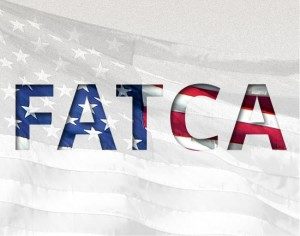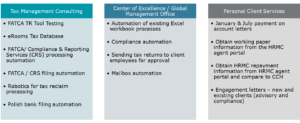
Enacted by the United States government in 2010 – the key objective of the Foreign Account Tax Compliance Act (FATCA) is to combat offshore financial non-compliance and to prevent money-laundering. India, too, has signed a deal with the US wherein any individual, financial institution, bank, company or business that engages with US clients and has assets over a certain level in their account, must undertake FATCA compliance processes. This is enabled by automatic exchange of financial information between the two nations about tax evaders.
How does this work ? Well – taxpayers with financial assets specified under the Act, must report them to the US Internal Revenue Services (IRS). FATCA also requires foreign financial institutions such as banks, to enter into an agreement with the IRS to identify their US account holders and to disclose the account holders’ names, TIN’s, addresses, accounts’ balances, account receipts and withdrawals.

Thus – complying with FATCA is a critical requirement for financial institutions and places a significant burden on them to implement, review and to consistently streamline KYC and compliance requirements. Incorrect and / or delayed implementation of compliance processes will lead to penalties and loss of reputation.
Hence the need for an end-to-end system that automates all FATCA operational processes and systems within a given time frame. In the system – bots can mail pre-created templates at different process levels and ensure performance delivery within the stringent regulatory deliverables.

The system can also help in management of working paper and compliance of documentation requirement. Documents attached can be cross referred and reconciled with data already available in the system. Reports of compliance with timelines can be created and mailed to relevant stakeholders. For non-compliance -the relevant escalation can be configured. This will ensure any report of mismatch or problems in the compliance process will be generated automatically and the issue can be escalated easily via e mail to all stakeholders.
I believe that automation is a great asset that can enable organisation to manage and process data, monitor timelines, enable escalations if needed, collate information from different sources at different levels of the process into pre-created templates and ensure performance within the stringent regulatory deliverables.
Ensuring high levels of performance and productivity.




